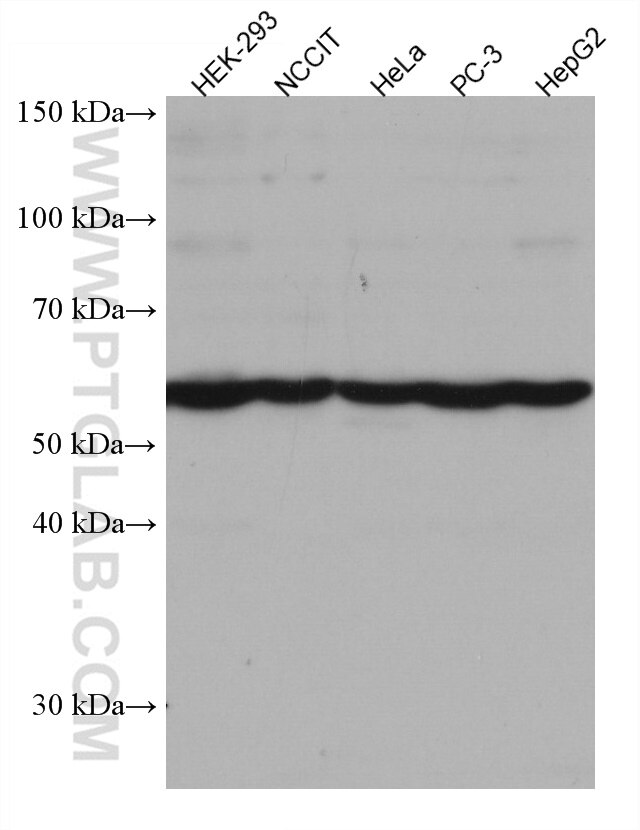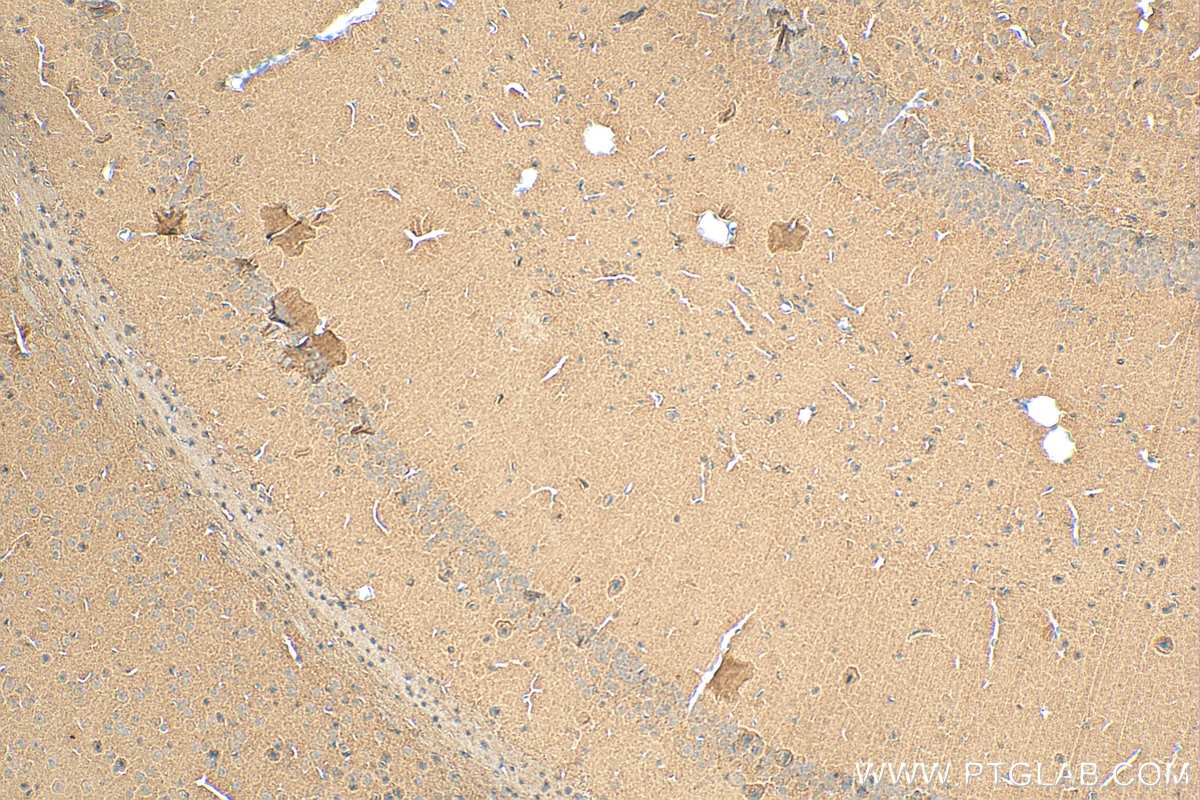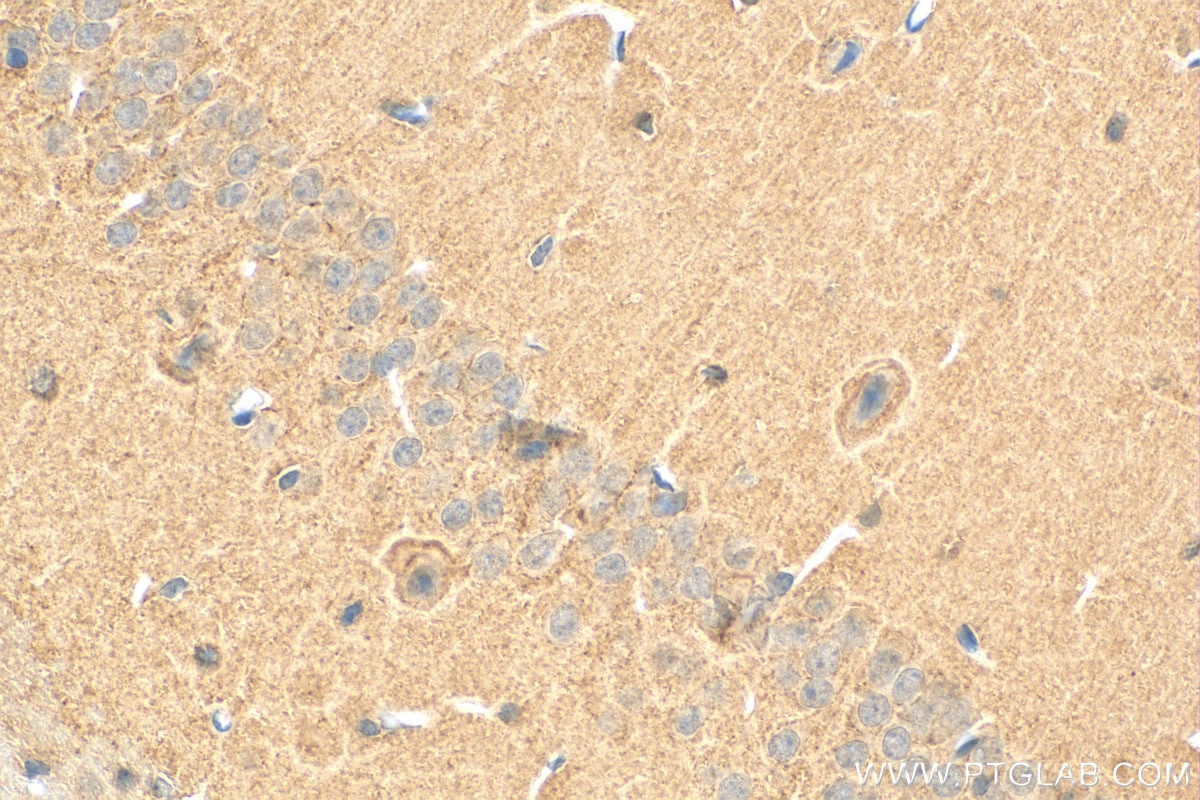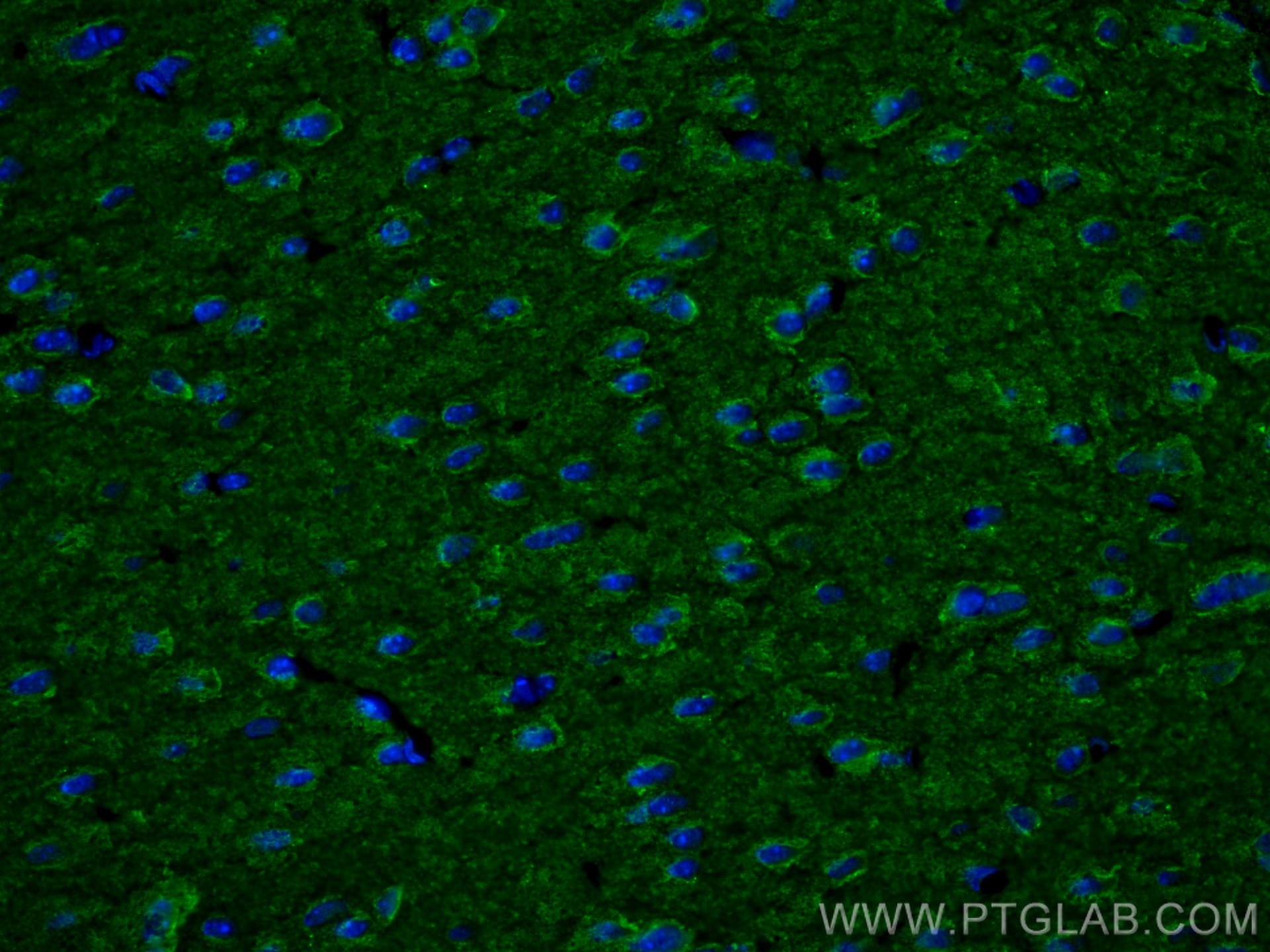Anticorps Monoclonal anti-SPAST
SPAST Monoclonal Antibody for WB, IHC, IF-P, Indirect ELISA
Hôte / Isotype
Mouse / IgG2b
Réactivité testée
Humain, souris
Applications
WB, IHC, IF-P, Indirect ELISA
Conjugaison
Non conjugué
CloneNo.
1F5A7
N° de cat : 67361-1-PBS
Synonymes
Galerie de données de validation
Informations sur le produit
67361-1-PBS cible SPAST dans les applications de WB, IHC, IF-P, Indirect ELISA et montre une réactivité avec des échantillons Humain, souris
| Réactivité | Humain, souris |
| Hôte / Isotype | Mouse / IgG2b |
| Clonalité | Monoclonal |
| Type | Anticorps |
| Immunogène | SPAST Protéine recombinante Ag18866 |
| Nom complet | spastin |
| Masse moléculaire calculée | 616 aa, 67 kDa |
| Poids moléculaire observé | 55 kDa |
| Numéro d’acquisition GenBank | BC150260 |
| Symbole du gène | SPAST |
| Identification du gène (NCBI) | 6683 |
| Conjugaison | Non conjugué |
| Forme | Liquide |
| Méthode de purification | Purification par protéine A |
| Tampon de stockage | PBS only |
| Conditions de stockage | Store at -80°C. 20ul contiennent 0,1% de BSA. |
Informations générales
SPAST encodes a microtubule-severing protein called spastin. By severing microtubules into small segments, SPAST participates in the regeneration of neurites. Mutations in the SPAST gene (previously known as SPG4) are the most common causes of hereditary spastic paraplegia (HSP-SPG4). Mammalian cells express at least two spastin isoforms, a less-abundant full-length form (M1-spastin, 68 kDa) and a more highly expressed isoform (M87-spastin, 60 kDa) that lacks the N-terminal 86 amino acids of the full-length protein. Also, there are two additional 64 kDa and 55 kDa isoforms due to alternative splicing of SPG4 exon 4. This antibody recognizes all these isoforms of spastin.









